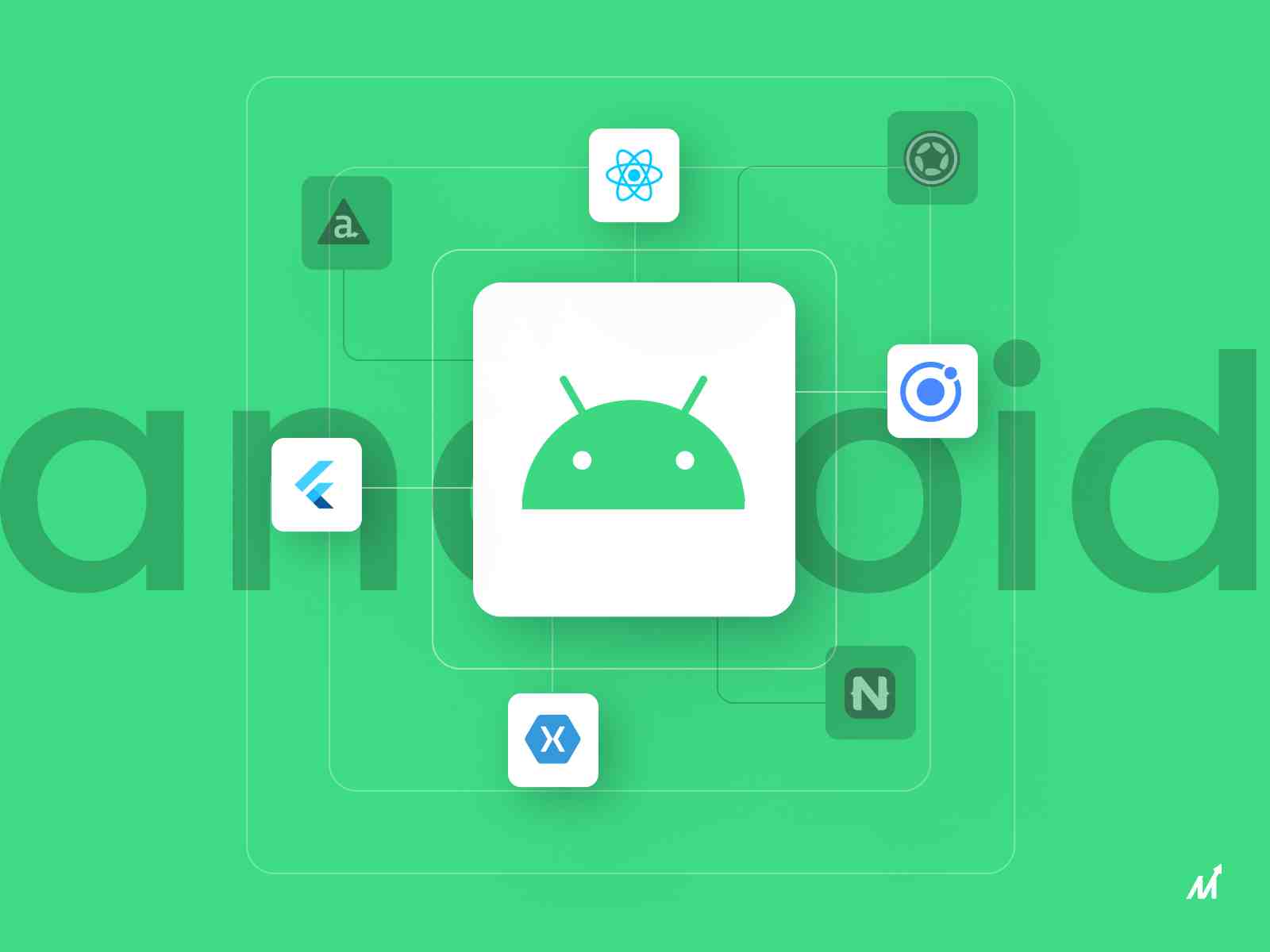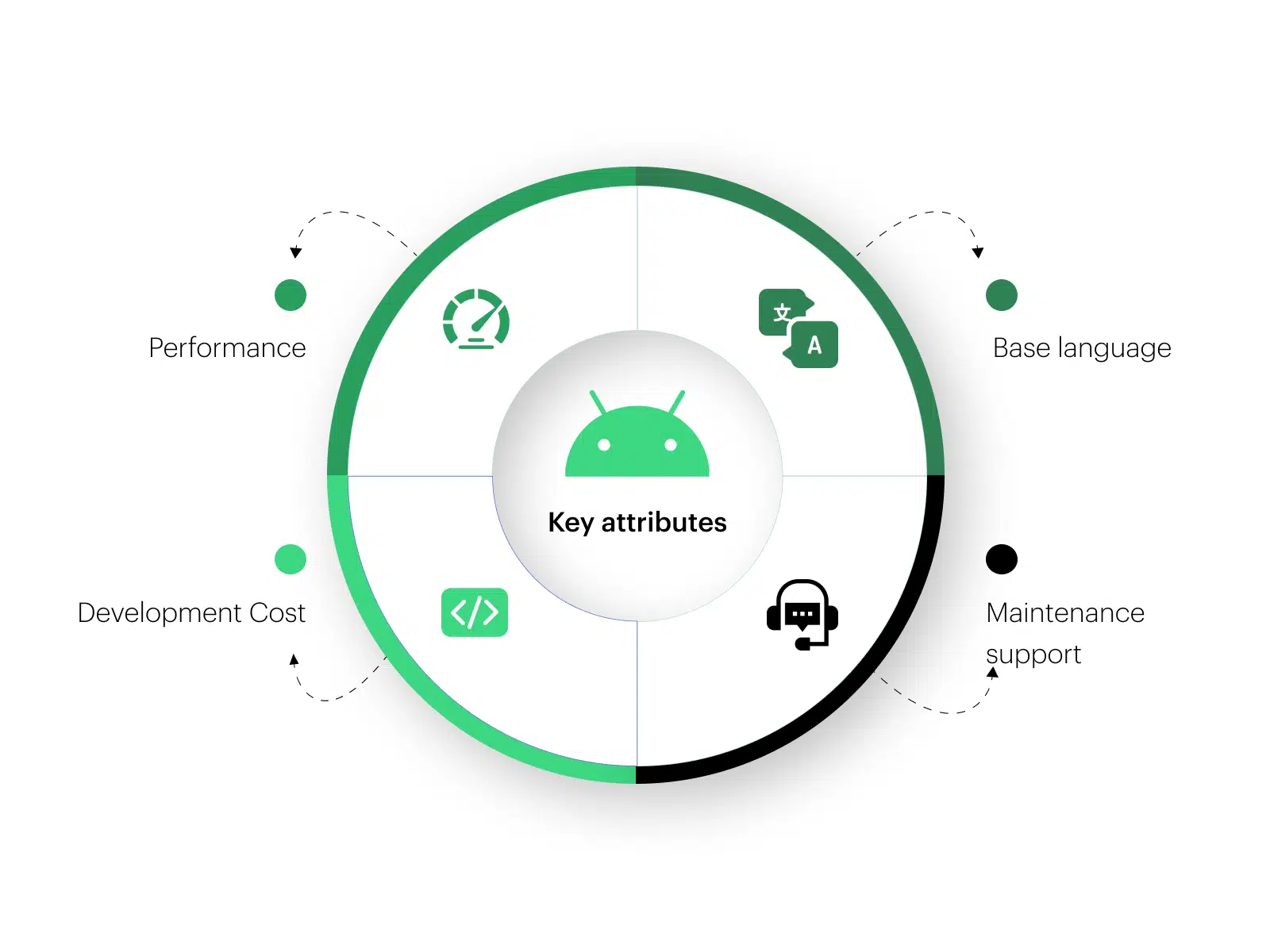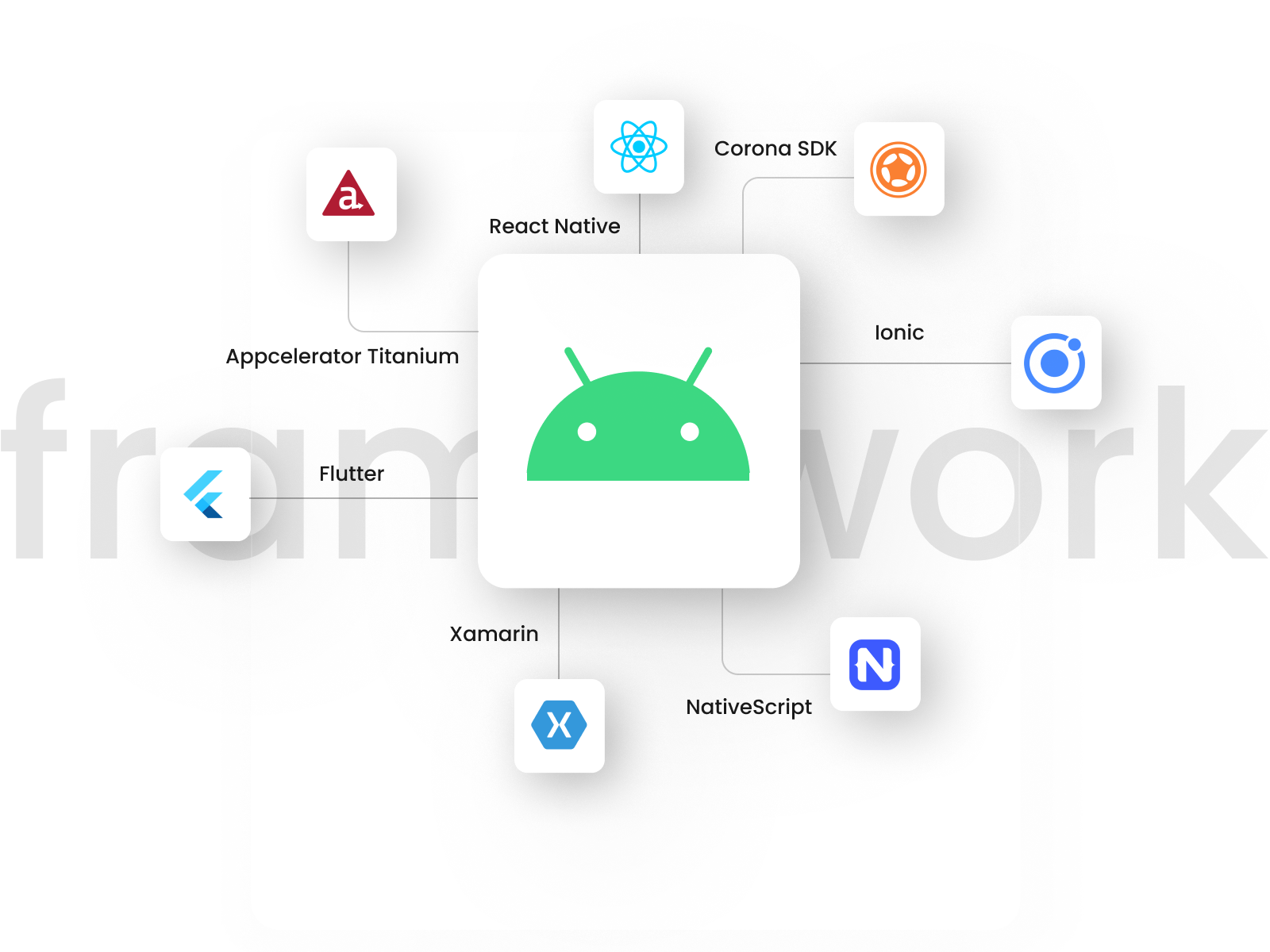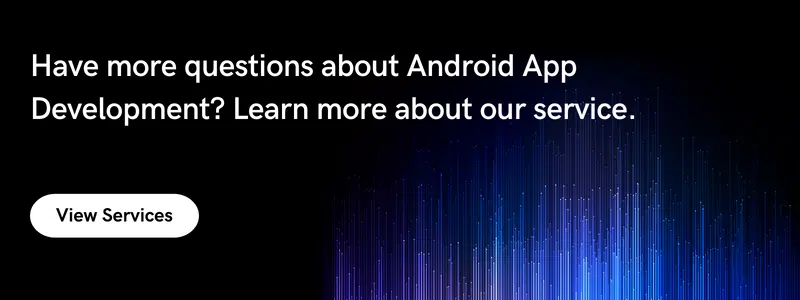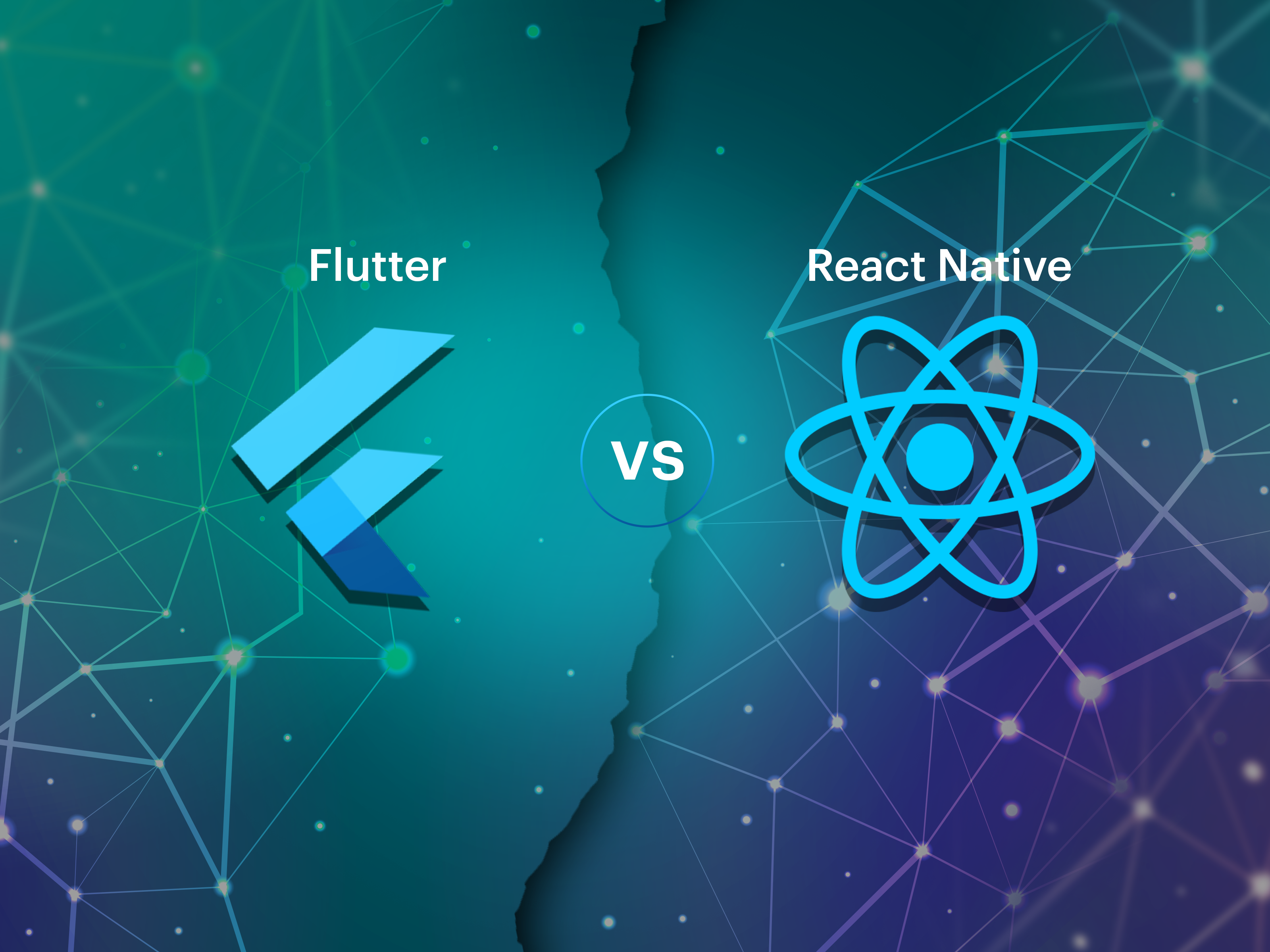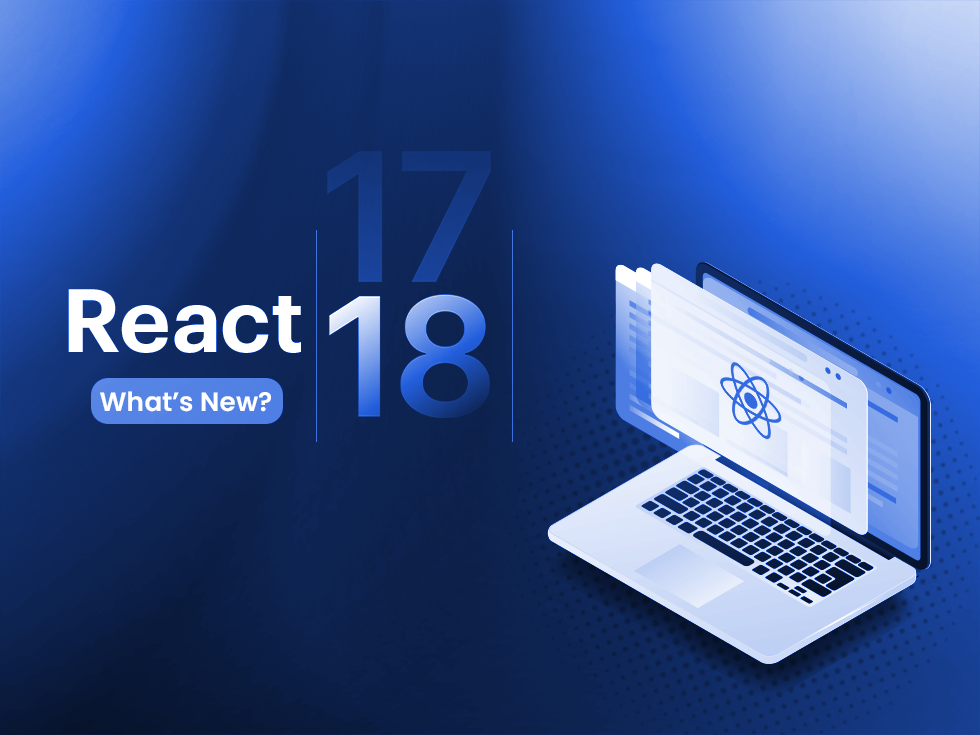Android Frameworks: Overview
Surprisingly, the market for app development has expanded at an unheard-of CAGR of almost 14.3%. In addition, it is anticipated to increase to $100 billion by the end of 2022 due to ongoing technological advancements and enterprise digital transformation. However, have businesses ever considered how to develop a mobile app? And why does the specific app work so well? Android frameworks are the straightforward answer.
There are many frameworks in the market, so picking the ideal one for a project can guarantee successful outcomes with the broadest possible audience. Although several operating systems and frameworks are available, Android has taken the lead because it accounts for the most significant chunk of the app development market and has access to multiple frameworks.
Android is the most popular operating system in the world, with over 2.5 billion active users spanning over 190 countries. Due to the widespread popularity and the scope of customization available on this platform, Android app development and frameworks have become a field of interest for enterprises looking to build applications to accelerate their product and up their game.
With access to best practices, there is no need to waste time reinventing the wheel. Instead, businesses can focus on completing the work and delivering high-quality code. However, there are a tonne of frameworks out there. How, then, can businesses know which gives them access to the most effective methods for creating Android apps? There is no need to be concerned because we conducted all the research. Below is a list of the top Android frameworks.
Android Frameworks: Key Attributes To Look Out
Choosing the Android framework can be a determining factor for the success or failure of the app. Thus, one needs to look for a few attributes to select the most appropriate one to suit the app and fulfill business goals.
1. Development Cost
Due to app development’s resource-intensive nature, it is essential to examine the ROI that the Android frameworks will provide. The company should know its budget, the amount they are willing to invest in the app development process, and the number of users they target.
2. Performance
Each framework performs differently depending on its integration capacity, the load it can take, and the number of third-party plugins they have. Therefore, one should check other apps that have used the particular framework and analyze their reviews to see if they function smoothly and guarantee high-quality output.
3. Base Language
Different android frameworks use different languages, even though the conceptual idea remains the same. The developer should be familiar with the language, the community, and the appropriate documentation and resources available to help debug and create new components.
4. Maintenance Support
It is crucial to check whether the Android framework works smoothly after deployment and automates upgrades, updates, and customer support processes.
Top Android Frameworks For App Development
1. Flutter Android Framework
Flutter is an open-source UI-based Android framework developed by Google in 2017. It is cross-platform, meaning a single codebase is required for iOS and Android. Flutter is a prevalent choice nowadays due to its productivity and efficiency. It helps to create a beautiful user interface that provides a native-like feel and has various widgets that can be personalized to create a beautiful front end.
Which Companies Use The Flutter Framework?
Companies like Alibaba, Google, CapitalOne, Tencent, and eBay have used the Flutter framework to create mobile applications, making it a trend on the rise.
Features Of Flutter Android Framework
-
Smooth testing without restarting the program, thanks to the hot reload capability
-
Accelerated time-to-market and sped up time for coding
-
There is a vast widget library available
-
Enables code to be reused between target platforms
USP Of Flutter Framework
Has the capacity to quickly and efficiently create natively compiled applications that are expressive, elegant, and of the highest quality for iOS and Android using a single codebase.
2. Ionic Android Framework
Released in 2015, Ionic is an open-source front-end Android framework based on HTML, CSS, JavaScript, Angular, and Typescript technologies. It allows businesses to create hybrid mobile applications, provides high performance, and creates sophisticated and robust designs. Ionic has various plugins and extensions to power the mobile app and make it user-friendly.
Which Businesses Use The Ionic Framework?
Startups and web development firms all over the world use Ionic. More than 4 million Ionic mobile, desktop, and web apps for rapidly expanding startup companies, travel agencies, restaurants, pharmaceuticals, and other industries have been powered by it thus far. 4 to 5 million app developers have utilized it.
Features Of Ionic Android Framework
-
Cross-platform mobile application development
-
JavaScript components
-
Framework compatibility with React.js and Vue.js, two popular front-end frameworks made available under the MIT license, and the most recent JavaScript frameworks
USP Of Ionic Framework
Build cross-platform apps with a single codebase for any device using the most developer-friendly Android development platform.
Learn how we can help with the Ionic framework. Explore our Ionic app development service.
3. React Native Android Framework
This framework is thriving, especially in the Android app development domain. React Native is based on JavaScript and is one of the most in-demand frameworks. It is estimated that 14.85% of the top 500 apps in the US are built with React Native. Created by Facebook, it’s a UI-based framework with a robust open-source community.
Which Companies Use The React Native Framework?
Numerous businesses, including Facebook, Instagram, Tesla, Intuit, Bloomberg, Uber, Yahoo, Walmart, and others, have adopted React Native over the years and are now widely used in thousands of apps due to its code reusability, live-to-reload features, and excellent performance flexibility.
Features Of React Native Android Framework
-
React Native’s built-in UI components and access to native code APIs allow Android apps to have a slick design and exceptional performance
-
It features the hot-reload feature, enabling the game developers to alter files without affecting how the app currently functions
USP Of React Native Framework
Popular for its attractive and native-like user interfaces across all platforms. Considerably reduces the time and expense of development.
4. Xamarin Android Framework
With over 2 billion downloads, the Xamarin framework is used by over 13,000 apps. Xamarin has recently emerged as an in-demand choice for developing cross-platform applications. It uses C# and works on all three platforms, Windows, iOS, and Android, to give the whole experience of a native app (the code shareability is almost 90%). In addition, it provides a variety of class libraries, cuts down on time and cost during development, and uses modern-day IDEs such as VSCode.
Which Companies Use The Xamarin Framework?
The enterprise and developers both adore Xamarin. Businesses from all sectors utilize Xamarin and .NET to create compelling native mobile apps.
Features Of Xamarin Android Framework
-
Programmers can work with shared C# or XAML code by utilizing the powerful and comprehensive toolset of the Xamarin Android platform
-
This code-sharing functionality cuts down on the time mobile app developers spend coding and the number of bugs discovered during the cross-platform development process
-
Using Microsoft’s cloud testing service, this user-friendly development environment framework makes testing apps across various active devices simple.
USP Of Xamarin Framework
Because it is free, cross-platform, and open source, Xamarin is a preferred Android development framework for developers and businesses. It allows them to create iOS and Android apps using .NET and C#.
Learn how we can help with the Xamarin framework. Explore our Xamarin app development service.
5. NativeScript Android Framework
NativeScript is an excellent SDK for creating hybrid apps and a framework for developing Android applications. An open-source framework, Nativescript supports JavaScript-based frameworks such as Angular or Vue. It allows businesses to directly access native APIs using JavaScript, resulting in convenient data binding and code reusability.
Which Companies Use The NativeScript Framework?
Numerous enterprises in the business world, primarily B2B tech firms, use NativeScript to create cross-platform mobile applications, including Symantec, Xerox, Dell, and Microsoft.
Features Of NativeScript Android Framework
-
NativeScript performs differently from the bulk of other native Android frameworks, which saves time and money when developing third-party apps
-
App developers get full access to all iOS and Android APIs thanks to the robust Testing framework
-
Furthermore, businesses can look for free templates, plugins, and custom app samples and simply reuse the Android and CocoaPods SDKs
USP Of NativeScript Framework
Gives developers all the tools they need to create stunning native mobile apps using JavaScript, TypeScript, Angular, or Vue.js, enabling them to use their skill sets to build native experiences for mobile.
6. Corona SDK Android Framework
A popular choice for developing 2D games and apps, Corona SDK is known for its graphics and animation. Now known as Solar2D, Corona SDK is swift, efficient, and based on an open scripting language, Lua. It has thousands of APIs and plugins, along with the ability to make a call to any native library, which helps to increase the functionality of the app drastically.
Which Companies Use The Corona SDK Framework?
Many well-known games, like Warcraft, Fun Run 2, Angry Birds, The Lost City, Hopiko, and Civilization, have already been developed using Corona SDK.
Features Of Corona SDK Android Framework
-
The internal library contains more than 1000 APIs and plugins
-
For developers, real-time device testing saves a tonne of time
-
Since it lacks an integrated development environment (IDE), it has additional plugins to access the necessary platforms
USP Of Corona SDK Framework
It is ideal for novices because Corona SDK has a simple syntax and is very approachable. It is the most excellent platform for developing both 3D and 2D games, speeds up production by ten times, and offers a variety of integration tools, some of the most well-liked of which include TestFairy, Helpshift, Lua, MoonScript, and GameAnalytics.
7. Appcelerator Titanium Android Framework
Appcelerator offers Titanium Android Studio, an open-source, cross-platform framework for building mobile apps using JavaScript codes. Businesses can develop their app in JavaScript and then compile them for native apps on multiple platforms. It helps to accelerate the application development life cycle and gives the developers an edge if they have worked on web-based applications.
Which Companies Use The Appcelerator Titanium Framework?
Titanium is the best option for mobile developers because it offers everything required to build fantastic native mobile apps from a single JavaScript code base. Its advantage is that it is swift yet provides the same performance as when programs are developed utilizing native APIs. It gives users access to native Android, iOS, Universal Windows, HTML5, and Blackberry APIs.
Features Of Appcelerator TitaniumK Android Framework
-
Appcelerator has a unique characteristic. A developer can use 60% to 90% of the existing code to build multi-platform applications
-
Additionally, it provides access to native APIs for operating systems like Android, iOS, Universal Windows, HTML5, and Blackberry
-
The advantage of utilizing hardware-specific functionalities is available to Android applications created with the Appcelerator framework
USP Of Appcelerator Titanium Framework
Titanium is a cross-platform framework that makes it possible to develop a single piece of code and use it to publish to several operating systems with just a few minor adjustments to suit a particular platform.
Key Differences in a Snapshot
| Feature/Aspect | Flutter | Ionic | React Native | Xamarin | NativeScript | Corona SDK | Appcelerator Titanium |
| Primary Language | Dart | HTML, CSS, JS | JavaScript, JSX | C#, .NET | JavaScript, TypeScript | Lua | JavaScript, XML |
| Performance | High | Moderate | High | Moderate-High | High | High | Moderate |
| UI Components | Rich & customizable widgets | Web components | Native modules | Xamarin.Forms or Native APIs | Native components | OpenGL graphics | Web-based or Native APIs |
| Community Support | Strong | Strong | Very Strong | Strong | Moderate | Moderate | Moderate |
| Code Reusability | High | High | High | Moderate | High | High | Moderate |
| Learning Curve | Moderate | Low | Moderate | High | Moderate | Low | Moderate |
| Integration Capabilities | Good with native modules | Extensive plugins | Rich native modules | Extensive with the Microsoft ecosystem | Good with native modules | Limited | Good with modules |
| Hot Reload | Yes | No | Yes | Limited | Yes | Yes | Limited |
| Deployment Platforms | Android, iOS, Web, Desktop | Android, iOS, Web, Desktop | Android, iOS | Android, iOS, Windows, macOS | Android, iOS | Android, iOS, Windows, macOS | Android, iOS |
| Popularity | Rising | Stable | High | Declining | Stable | Declining | Declining |
| Cost | Free | Free (Open Source) | Free (Open Source) | Commercial License | Free (Open Source) | Free for basic, Paid for Enterprise | Free for basic, Paid for Enterprise |
| Best Use Cases | High-performance apps | Hybrid apps, PWA | Apps requiring native capabili |
How To Select From Android Frameworks For Business
In the dynamic realm of mobile app development, where every millisecond and user interaction counts, choosing the right Android framework is crucial for building applications swiftly and effectively. As we navigate through 2024, the array of available frameworks can be bewildering, but I’ll help you laser-focus on six key points to consider for making the best choice for faster app development.
1. Assess the Framework’s Performance and Efficiency
Performance is paramount when it comes to user experience on mobile devices. A framework that enables smooth animations and transitions while handling a heavy load of user interactions can be the cornerstone of your app’s success. Look for a framework that provides a native feel, with a responsive and seamless user interface.
Frameworks like Flutter have gained popularity due to their high-performance rendering engine. They enable developers to achieve 60 frames per second (fps) performance, which is the gold standard for smooth animation on screens.
2. Evaluate the Learning Curve and Developer Community
Time is money, and the time you invest in learning a new framework should pay off. If you’re on a tight deadline, it’s wise to opt for a framework with a gentle learning curve. Kotlin, for instance, has become a darling of the Android community for its concise and expressive syntax that aligns closely with Java—familiar territory for many developers.
A robust developer community is an invaluable asset. Frameworks with large communities like React Native provide extensive resources, from tutorials to third-party plugins, and an environment where help is readily available. This can significantly accelerate development pace.
3. Look for Comprehensive Libraries and Tools
Libraries and tools are your best friends for speeding up app development. They provide pre-written code for common tasks, allowing you to avoid reinventing the wheel. When selecting a framework, consider the richness of its ecosystem.
Android Studio, paired with the Android SDK, provides a comprehensive suite of tools that make tasks like debugging, performance monitoring, and UI design much more efficient.
4. Consider Cross-Platform Compatibility
Why build twice when you can build once? Cross-platform frameworks allow you to write your code once and deploy it on both Android and iOS. This can significantly cut down development time and effort.
React Native is a standout for cross-platform development, letting you build a native-like app with JavaScript. However, new entrants like Google’s Flutter are making waves by providing a single codebase for both platforms without compromising on performance.
5. Prioritize Flexibility and Scalability
Future-proof your app by selecting a framework that’s flexible enough to accommodate changes and scalable to handle growth. Your chosen framework should support the integration with backend services and third-party APIs.
Frameworks like Xamarin offer a versatile and scalable environment, supporting both .NET and native APIs, which can be crucial for enterprise-level applications that need to scale over time.
6. Analyze Cost and Licensing
The bottom line matters. While many Android frameworks are open-source and free, some require licensing fees. Moreover, the total cost of ownership includes maintenance and scaling costs. It’s essential to evaluate the financial aspect before committing to a framework.
Consider the license of the framework and any third-party libraries it uses. Apache and MIT licenses are generally permissive and business-friendly, while others may have restrictions that could affect the way you use or distribute your app.
Wrapping Up
In 2024, with the Android app market more competitive than ever, choosing the right framework is a strategic decision that can set the pace for your project’s success. Here’s a quick rundown:
- Opt for high-performance frameworks that deliver a native user experience, like Flutter or Kotlin, to ensure your app operates smoothly under various loads.
- Choose a framework with an easy learning curve and a strong community for support, such as React Native or Kotlin, to get up to speed quickly and have access to extensive knowledge and tools.
- Utilize frameworks with rich libraries and tools like Android Studio combined with the Android SDK to streamline the development process.
- Embrace cross-platform frameworks like React Native or Flutter to save time by using a single codebase for multiple platforms.
- Select frameworks that offer flexibility and scalability, like Xamarin, to ensure your app can grow and adapt to new requirements without the need for a complete overhaul.
- Consider the total cost of ownership, including licensing fees, to ensure that your chosen framework aligns with your budget and business model.
By thoroughly considering these six points, you’ll be well-equipped to select an Android framework that aligns with your development needs, speeds up your app’s time to market, and provides a solid foundation for your app’s future growth.
Android Frameworks: Markovate’s Experience
Choosing the ideal developers is crucial because utilizing the proper Android framework can be challenging and requires solid technical understanding. At Markovate, we deliver Android App development services to ensure that business gets top-notch apps, hybrid or native. From designing an effective product to developing the code and managing maintenance, we’re with companies at every step. If you’re looking to incorporate artificial intelligence into your Android app, Markovate offers AI development services to help you unlock the data value and solve complex problems with AI
Our developers are highly skilled and flexible to adjust per businesses’ requirements and needs. We help companies to develop apps that stand out in the industry, are reliable, and have the perfect mix of the latest technologies to provide them with the best mobile app possible!
Further Read: Everything You Need To Know About Mobile App Development Framework
Common FAQs Related To Android Frameworks
1. Which Android app development frameworks can be considered the most popular?
React Native can be considered one of the most popular frameworks, with almost 40% of apps built using it.
2. Which mobile app development frameworks can be used for cross-platform app development?
Xamarin, Flutter, and Ionic are some cross-platform mobile app development frameworks, i.e., they can be used on both iOS and Android.
3. What technologies or frameworks can be applied to build a mobile application?
Technologies or frameworks such as Dart, C++, Kotlin, Swift, Appcelerator, and PHP can be used to build a mobile application.

